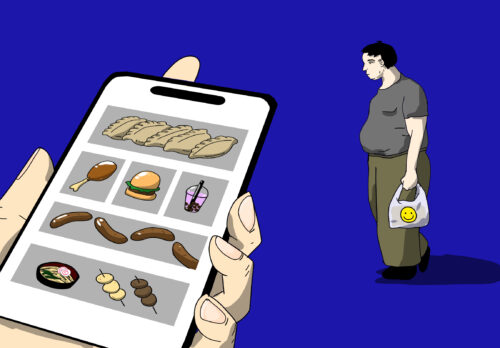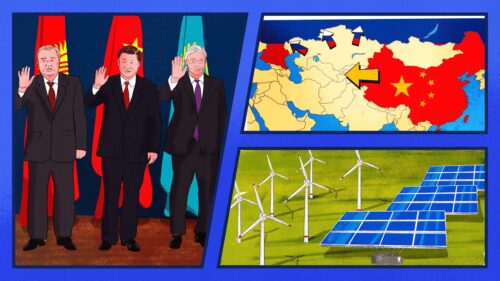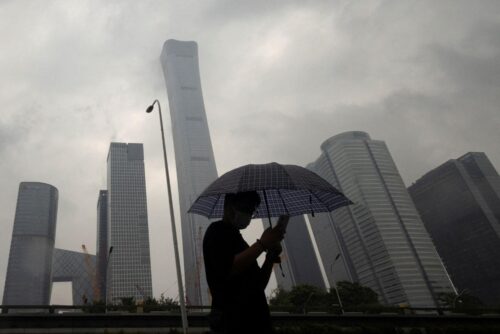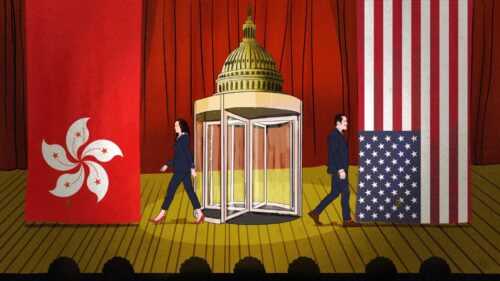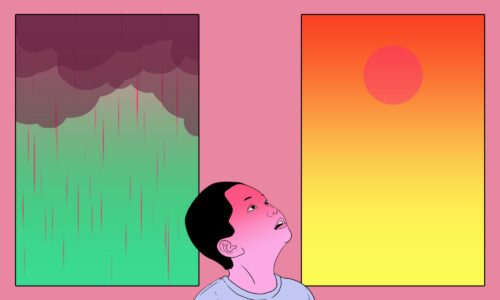How China hides trillions of dollars of hard currency
...and why China’s Global South diplomacy is such a challenge for the United States | June 30, 2023
EDITOR’S NOTE
China’s foreign policy law vs. U.S. sanctions
Dear reader,
Two stories about China that have global ramifications are in today’s newsletter: one by noted economist Brad Setser on how China is holding a lot more foreign currency than its official numbers suggest, and another on the underappreciated challenge to the U.S. of Beijing’s diplomacy in the Global South by Cobus van Staaden — scroll down for summaries or click through.
The biggest China news of the last day or two is the country’s new foreign policy law, which is apparently partly in response to various U.S. and sanctions and other perceived threats to China’s sovereignty and development. You can read the full text of the law here, or an English translation here, from China Law Translate.
The law takes effect on Saturday, July 1, which will also be celebrated as the 102nd anniversary of the founding of the Chinese Communist Party.
State-owned nationalist tabloid Global Times said the law provides a “legal basis for the diplomatic struggle against sanctions” and is also a “warning and deterrence against Western hegemony.”
Bloomberg says the law extends Xí Jìnpíng’s 习近平 “combative stance on asserting Beijing on the world stage,” and “gives Beijing’s existing toolkit more weight by embracing it in a legal document alongside two of Xi’s signature foreign policy initiatives,” the Global Security Initiative and Global Civilization Initiative, which are “are baked into the law.”
Today, just after the new law was promulgated, the Dutch government announced new restrictions on exports of certain advanced semiconductor equipment, in line with U.S. curbs on high-tech sales to China.
Decoupling is not dead yet!
Finally, will the enormous size of China’s electric car market and the intense competition between domestic manufacturers mean that they will miss out on global opportunities? One new report on the Chinese EV industry warned of this danger, using our Phrase of the Week:
Be blinded by a single leaf and not see Mount Tai
一叶障目,不见泰山 yíyè zhàngmù bújiàn Tài Shān.
If you’re interested in EVs, don’t miss our subscriber-only webinar on July 11 which considers the question: “Has the West lost the electric vehicle race to China?”
Jeremy Goldkorn
Editor-in-Chief
CURRENT AFFAIRS
Why China’s Global South diplomacy is such a challenge for the United States

Illustration for The China project by Derek Zheng
Most poor countries — and that means most countries — don’t like the current “rules-based international order.” America is not prepared for the enormous appeal of China’s influence, argues Cobus van Staden in his inaugural Southern View column, which looks at China’s relations with developing countries from developing countries’ point of view.
“Remember when poor countries didn’t matter? Those halcyon days when an American president could call them shitholes and nobody would mind? Those days have just ended,” writes van Staden.
More editor’s picks from this week:
The U.S. filed its first fentanyl prosecutions against China-based actors. The Justice Department accused four Chinese chemical manufacturers and eight individuals for aiding the production and flow of illegal fentanyl into the U.S., writes Nadya Yeh.
In 2008, the Afghan government and a state-owned Chinese company signed a deal to mine copper at Mes Aynak, just south of Kabul, despite objections from archeologists that it would destroy a Buddhist site more than 1,500 years old. The Taliban renewed the agreement, write Syed Fazl-e-Haider and Arran Hope. So why is the project stalled?
The internment of Uyghurs in China constitutes arbitrary detention and violates their human rights, according to a UN Working Group report. “China might not take any notice of us, but they have to listen to the UN,” one exiled Uyghur told Ruth Ingram.
Japan and China clash over many different issues, and Japan’s government today has taken to labeling China as a “strategic challenge” to the international order and an adversary. But there are still some within Japanese politics who believe there is room for dialogue, writes Duncan Bartlett.
In 2017, the Southeast Asian nation of Timor-Leste signed up to the Belt and Road Initiative and hosted Chinese warships in its ports. It led to fears in Australia of a political power-play by the P.R.C., with some calling Timor-Leste “Australia’s Cuba,” writes Alex Colville.
News briefings this week:
June 26: Russia’s ‘internal affair’ and fentanyl charges
June 27: Israeli Prime Minister Benjamin Netanyahu to visit Beijing
June 28: U.S.-China tech war: proposed new U.S. chip curbs
June 29: The Chinese government tightens its grip on foreign policy, while tensions with India are rising
BUSINESS AND TECHNOLOGY
How China hides trillions of dollars of hard currency

Illustration for The China Project by Alex Santafé
China has a lot of foreign exchange reserves that do not show up in the official books of China’s central bank. Much of the money is in the state commercial banks and in policy banks, thus largely escaping scrutiny.
These funds exceed the formal reserves of most major economies, and mean that China has close to $6 trillion in foreign assets, rather than the $3.12 trillion reported by the State Administration of Foreign Exchange in 2022.
Noted economist and Treasury Department veteran Brad Setser explains how China’s shadow reserves could impact the global economy.
More editor’s picks from this week:
China wants to compete with Elon Musk’s Starlink: After Russia invaded Ukraine, China watched as Starlink enabled Ukraine’s military to access high-speed internet through most of the conflict. Beijing has now fast tracked the rollout of China’s own massive Guówǎng 国网 project.
Chinese battery manufacturers are investing in countries that have free trade agreements with the U.S., such as Morocco, Chile, and South Korea, to gain access to the American market.
Shein invited American influencers on a sponsored Chinese factory tour in a bid to mend its reputation. But their glowing social media reviews of the fast-fashion juggernaut has sparked widespread backlash ahead of Shein’s initial public offering (IPO) on the U.S. stock market later this year.
BOOKS AND ENTERTAINMENT
Pro wrestling in China is ready for its comeback

“My personal dream is to make wrestling popular within China,” says Zhao Junjie, wearing the aftereffects from his tag-team match in which he and Buffa put on a strong-style showcase. Photo by Dan Sandoval.
The wacky, theatrical, quintessentially American sport of pro wrestling has a short but eventful history in China.
COVID nearly killed the industry. Those who are still kicking — a motley crew of professionals, hobbyists, lifers, dreamers, and realists — are now working together to rebuild this thing they love. Anthony Tao has this story.
More editor’s picks from this week:
Coalitions of the Weak: Elite Politics in China from Mao’s Stratagem to the Rise of Xi is the title of scholar Victor Shih’s new book, which he discusses with Cambridge University’s Chris Marquis.
Wham! in China: Simon Napier-Bell was a composer, songwriter, record producer, and author living a hedonistic life in London. Bored, he decided to try to make Wham! the first Western pop group to ever perform in the People’s Republic of China. His book has made Paul French’s Ultimate China Bookshelf.
Nine women in their twenties and thirties living ordinary, if turbulent, lives are the subjects of Typhoon Days, a collection of stories by Chinese author Lù Yīnyīn 陆茵茵. Some of them span several years, while others tell the events of just a few days.
Realism and the supernatural mix in The Sacred Clan, a collection of short stories by Liáng Hóng 梁鸿 that continue her lifelong work of capturing rural China.
SOCIETY AND CULTURE
British Museum under fire for using translator’s work without permission
Vancouver-based translator Yilin Wang has accused the British Museum of using her translations of poetry by Qiū Jǐn 秋瑾, an early-20th-century feminist revolutionary and prolific author, without permission or credit in an exhibition in London.
There is now an ongoing and very public fight between Wang and the increasingly controversial museum.
More editor’s picks from this week:
On June 28, 1981, Huá Guófēng 华国锋 resigned as chairman of the Communist Party of China, a post he had held for more than five years. Largely forgotten, does Hua live up — or down — to his reputation as one of the world’s least competent leaders? James Carter takes a look in This Week in China’s History.
Lloyd Randall is a sportscaster for one of the biggest TV stations in Africa, Star Times, which is owned by a privately-held Chinese company, founded in Beijing in 1988. Jonathan Landreth recently spoke with Randall about Africa, China, media, and more.
The work of millennial photographer Shàng Zhéfēng 尚哲峰 is inspired by his upbringing: “Coming from a lower social class, I’m the product of the state machinery, and I represent the majority,” he says.
PODCASTS AND VIDEO
China’s response to the Wagner mutiny
This week on The Signal with Lizzi Lee, Lizzi speaks with Moritz Rudolf, a research scholar at Yale Law School about the recent revolt of the Wagner Group in Russia on how Chinese media will report on this event and what it means for the future of China and Russia’s relationship.
On our TikTok channel:
A translator is calling for a boycott of The British Museum after the London institution used their translations of a famous Chinese writer without her permission.
Shein is facing another round of controversies following a group of American fashion influencers visit to its factories in Guangzhou. Some followers are accusing the influencers of engaging in propaganda, but other experts wonder if it’s possible they were duped.
Audio stories
Only twice has a Nobel peace laureate died in state custody. The first time was in 1938, when German pacifist Carl von Ossietzky died in Berlin of mistreatment at the hands of his Nazi captors. The second was in the summer of 2017.
Palestinian Authority President Mahmoud Abbas wrapped up a visit to Beijing last week where he heard lofty promises from Chinese officials about their desire to mediate a settlement with Israel. While the visit made for some good headlines, the chances of China jump-starting the stalled peace process are close to zero.
EVENTS FROM THE CHINA PROJECT

Has the West lost the electric vehicle race to China?
Chinese company BYD surpassed Tesla in 2022 as the top company globally for EV and lithium battery production? Has the entire world now become dependent on China for electric vehicles, from supply chains to manufacturing to car brands? Ask questions and listen to two leading EV experts in this subscriber-only webinar, with:
Lei Xing: EV industry analyst and co-host of China EVs and more podcast
Henry Sanderson: Executive editor ofBenchmark Mineral Intelligence, and author of Volt Rush: The Winners and Losers in the Race to Go Green)
Date: July 11, 10–11 a.m. EDT
